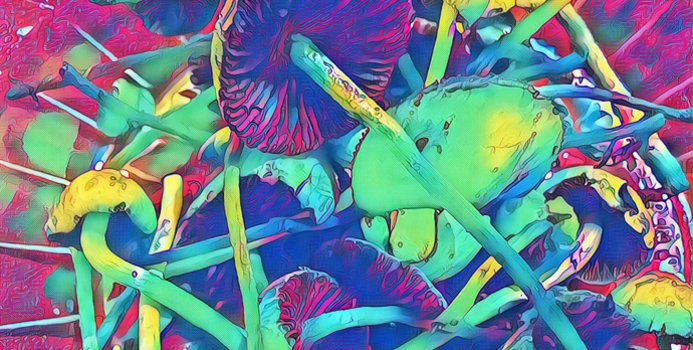Here’s how it happened: An off-duty Alaska Airlines pilot, hitching a ride in the cockpit of one of the airline’s regularly scheduled flights, suddenly attempts to shut down the airplane’s engines.
In mid-air.
He wasn’t successful, and later confessed to having ingested psilocybin “magic mushrooms” some 48 hours before the flight — as part of a “remembrance ceremony,” he says, for a deceased friend.
Some memory. Two days later, believing he was trapped in a dream state and might already be dead, he jeopardized the lives of dozens of passengers.
And as a result, he now faces 83 counts of attempted murder. One of many stories that followed.
Ordinarily, the acute effects of psilocybin are expected to last 4 to 6 hours. There have been cases, however, of a condition known as Hallucinogen Persisting Perceptual Disorder (HPPD), where visual and auditory effects can continue for days or weeks or even longer. Here’s something on that subject.
But this struck me as well beyond that– amounting to a drug-induced psychosis.
Definition of psychosis: A mental state where, following use, the user experiences loss of contact with reality, often accompanied by delusions — false beliefs that appear to the user as quite real.
The pilot “…became increasingly suspicious that the airplane would never make it home, and that he would endlessly fly, never reaching his destination.”
No, that doesn’t make sense. But it’s a fairly typical example of drug-induced delusional thinking. Incredibly dangerous if the psychotic person happens to be flying an airplane.
The pilot himself brings up an issue that directly affects others in the profession. When a pilot has a problem with alcohol or various drugs, they often go to great lengths to avoid treatment.
The reason is simple: being identified as someone with a substance disorder can lead to the loss of a pilot’s license to fly– rendering them unemployable in their chosen profession.
So instead, they keep on flying, prolonging the potential for disaster.
A drug-related psychosis can be expected to last for at least several months. I suspect it occurs more frequently than we think, for the most part unrecognized.
A final link on the subject:
The many faces of psilocybin-related psychosis: A case series













